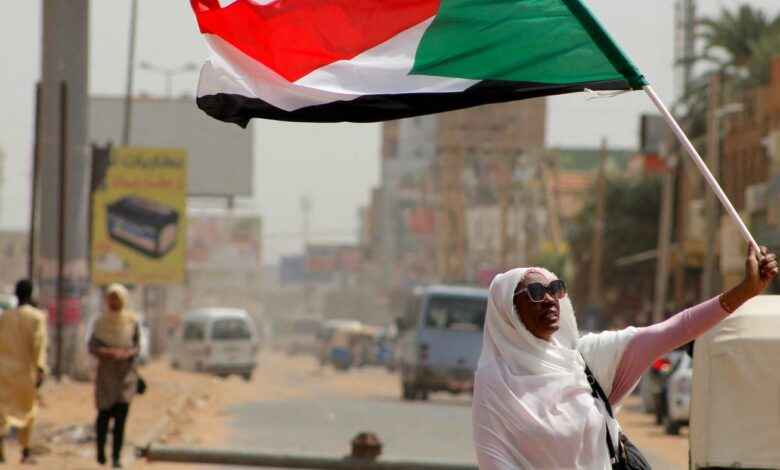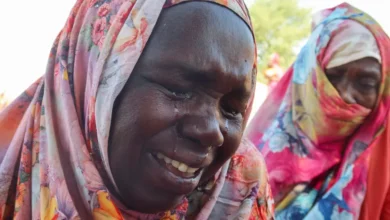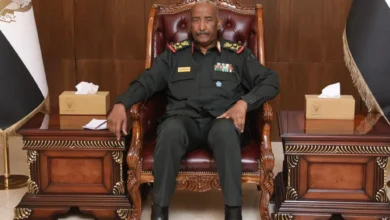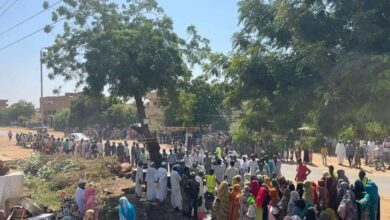Middle East Eye: Sudan’s opposition divided with political deal on transition imminent

A report by the British “Middle East Eye” website stated that the Sudanese opposition forces are deeply divided over a proposed political deal under international sponsorship to complete the transitional phase.
The report pointed out that the forces rejecting the new offer are a section of the Resistance Committees, the Sudanese Professionals Association, the Communist Party and other forces, as they reject any new political deal that guarantees the army’s partnership in political life.
As for the forces that support the offer, the most prominent of them are the Freedom and Change Forces, which are formed from a number of parties, including the National Umma Party, the Sudanese Congress Party, a number of forces of the Democratic Unionist Party, the Arab Socialist Ba’ath Party and other forces.
As for the forces that support the offer, the most prominent of them are the Freedom and Change Forces, which are formed from a number of parties, including the National Umma Party, the Sudanese Congress Party, a number of forces of the Democratic Unionist Party, the Arab Socialist Ba’ath Party and other forces. The division of the resistance committees.
The report noted that the resistance committees – made up of “radical” youth across Sudan who are pro-democracy – are also divided over support for the deal, which is being mediated in part by envoys from the United States, the United Kingdom, Saudi Arabia and the United Arab Emirates, and is also supported by the United Nations Integrated Transitional Assistance Mission In Sudan, UNITAMS.
The resistance committees were united under the slogan of the three nos (no negotiation, no partnership, and no legitimacy for the military coup that took place in October last year), but now a part of them is divided and has gone to support the ranks of the forces of freedom and change in accepting the possible deal. Supporters of the deal say it is a realistic first step back on the path to civilian government.
The army commander, Lieutenant-General Abdel Fattah al-Burhan, announced last July his intention to step down and allow the Sudanese factions to agree on a civilian government, but civilian leaders questioned the announcement and described it as a “hoax” and the resistance committees continued the rallying cry of “no negotiation, no partnership, no legitimacy.”
The report stated that the proposed deal was prepared by the Sudanese Bar Association Steering Committee, which is stuck between the divided opposition groups, in coordination with the Forces for Freedom and Change, international legal aid organizations and others in order to prepare a new constitutional declaration to guide the transitional period of government that would pave the way for elections.
The forces rejecting the offer say that it aims to dismantle the forces that call for radical change in the country, and that those who accept it are negotiating their own privileges and want to enter into a power-sharing with the army.
For their part, the Forces of Freedom and Change welcomed the initiative, stressing that it is a practical step to defeat the military coup, and that its rejection will lead to the loss of the opportunity to end the coup.
The report quoted a source close to the Bar Association’s steering committee as saying that the new offer includes the formation of a new structure for civilian governance, including the Council of Ministers, the Legislative Council and other independent bodies, and limits the role of the army in political life.
The report also quoted Jonas Horner, an analyst specializing in Sudanese politics at the International Crisis Group, as saying that international efforts to resolve the current Sudan crisis are not strong enough, and that the basic divisions within the civil side have impeded resolving the crisis, adding that it is likely that the new initiative will be met with widespread rejection from Sudanese, if it included power-sharing with the army.
Horner said that there are few incentives for the army to hand over power to civilian anti-coup political forces, noting that any exit would require Sudanese and international guarantees for the army about its continued role in the country’s economy and politics, along with assurances of impunity for abuses that occurred during the country’s civil wars and revolution.





